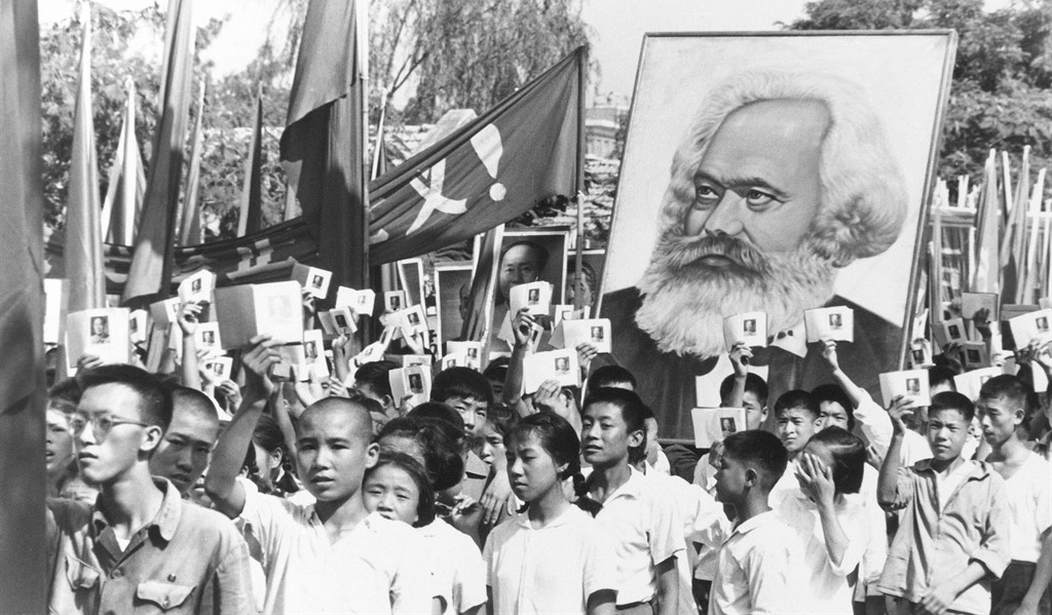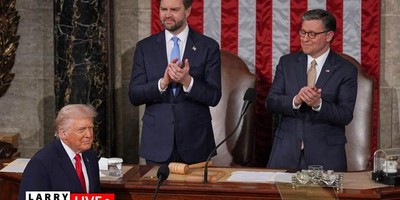In the 1953 classic film The Wild One, a girl asks Marlon Brando’s smoldering Johnny Strabler what he is rebelling against. He answers, “What’ve you got?” That could well be the guiding principle of today’s cultural revolution. It appears to be intimately tied to the rise of a new form of socialism, one that Karl Marx might have trouble recognizing, but one that Mao would. It is aimed at overthrowing or subverting all American institutions to put in place a state unlike anything America has known before.
We know from polling data that socialism is more attractive to Americans, especially young, white, college-educated ones, than ever before. Yet, as I detail in my new book The Socialist Temptation (Regnery), even self-proclaimed socialists are often unclear as to what they mean by the term. They do not appear to mean old-style European democratic socialism, where industries and utilities were publicly owned and controlled, and subject to politically determined targets.
Instead, they appear to favor a vastly expanded welfare state and strict “democratic” oversight of private industry to help right old wrongs of racial, gender, and environmental injustices. As policies like the Green New Deal illustrate, reforms will be radical and wide-reaching.
It is the disquiet at old wrongs that appears to be behind the current wave of riots, statue toppling, and attacks on the police and judicial system. In that respect, the current movement is not democratic but unapologetically revolutionary. America’s new socialists are driving liberal policies leftward and hope to force a new Congress and administration to follow their agenda.
Why is this not more widely appreciated? In my book I argue that this modern American socialism succeeds because it does a very good job at speaking to American values. Americans come in three main value groups—those who favor fairness, those who favor freedom, and those who favor community.
Recommended
Our modern socialism says that in its America everyone will be treated fairly, that old barriers to freedom will be lifted, and that we will return to the American dream with full employment and a job for life. They will do this through providing everyone with universal income, better working conditions, and union jobs. A strong administrative state will regulate private industry and stop it from exploiting people.
Yet conservatives and free marketers know these are all lies. A socialist America will be ruled by busybody bureaucrats, everything not explicitly permitted will be banned, and the only people with a job for life will be those busybody bureaucrats, paid for by the rest of us. Regulators and industry will entrench crony capitalism and kill competition and innovation. This will inevitably lead to economic and social collapse. We know this because we have seen it happen time and again. It was what was promised in Venezuela, where people were reduced to eating zoo animals.
To others, however, socialism appears alluring, seductive, tempting. America, as we know, is a land of many faults, and socialism offers a utopian solution to all those ills. However, we should remember that Utopia actually means “no-place” because no place can exist without faults, and socialism’s faults have always been much worse than those of capitalism.
Moreover, the modern American socialist’s ideal state cannot be put in place without tearing down all its old institutions—political, social, and cultural. Courts must be packed to ensure “democratic” control of policy. What we quaintly call “rights” like freedom of speech are used as instruments of oppression that must go or be allowed only if they act against that oppression. The Founding Fathers and other heroes of the past must be vilified as they founded and enabled a state based on inequality. ‘What’ve you got,’ indeed.
In all of this, modern American socialism reveals itself as less Marxist and more Maoist. China’s cultural revolution aimed at “sweeping away all demons,” by which it meant old habits, old customs, old culture, and old ideas. It ended up destroying thousands of years of cultural heritage and breaking apart Chinese institutions, ways of life, and even families.
If we are to prevent this, those of us who value freedom and community must persuade our equality-loving brothers and sisters to reject socialism and counter this revolutionary moment.
Iain Murray directs the Center for Economic Freedom at the Competitive Enterprise Institute in Washington, D.C., where he is vice president for strategy and a senior fellow. For the past fifteen years, he has written and lectured extensively on free markets and the environment, labor policy, finance, the EU, and trade. He tweets at @ismurray and is a contributing editor at InstaPundit. He is the author of three books, most recently, The Socialist Temptation.
A former civil servant in the United Kingdom, where he helped to privatize the railroad industry, Murray has lived in the United States since 1997 but remains a British citizen. He holds an M.B.A. from the University of London and an M.A. from the University of Oxford.

























Join the conversation as a VIP Member